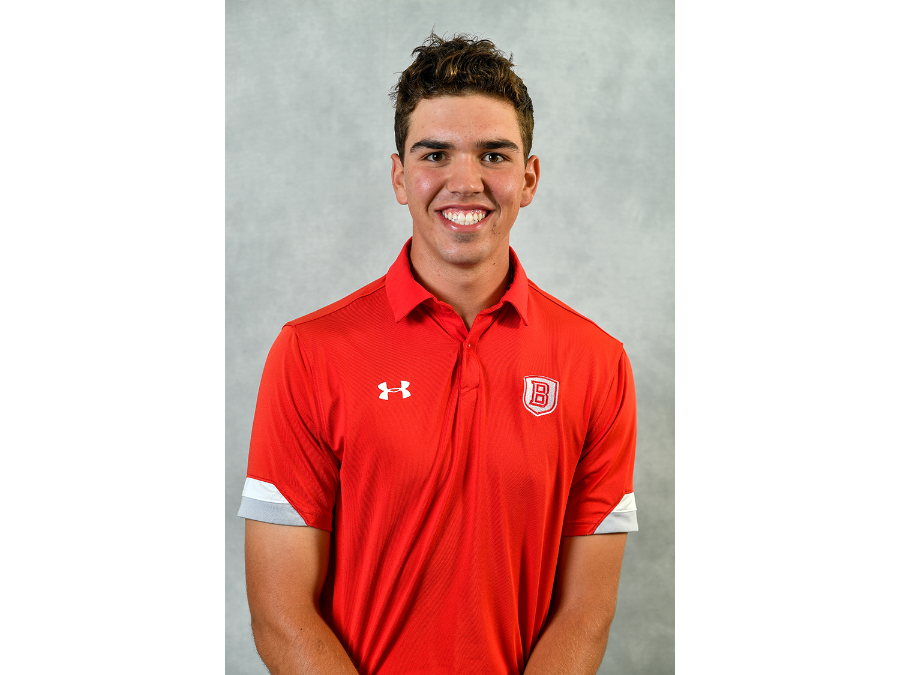How Foreign Regimes Infiltrate Your Favorite Sports
Throughout 2022, John Stillman closely observed his two passions — golf and political science — colliding in a way that rocked the sports world.
It ended up making for a compelling senior honors project, too.
Stillman, a senior political science major and member of the Bradley men's golf team, watched the emergence of the LIV Golf tour last year as it dominated headlines.
The insurgent tour, financed by the Saudi Arabia Public Investment Fund (PIF), declared itself a competitor to the Professional Golf Association tour, seeking to poach its best golfers with huge sums of money and a different spin on the venerable game.
Besides LIV Golf causing upheaval to his favorite sport, Stillman’s attention centered on the potential political motivations of the Saudi Arabian government funding such a sports league. The term to describe this modern form of soft power is “sportswashing,” where nations with a questionable human rights record use sports to launder their reputations in a more positive light.
“It’s a way to improve your image as a nation,” Stillman said. “Countries can say, ‘Look at all the good we’re doing for the world and for sports.’”
Stillman is no stranger to rigorous study. Two years ago, he performed data entry and research for an academic paper from the political science faculty on COVID-19 outcomes, landing him a co-author byline on the paper.
Bradley students often receive opportunities to collaborate closely with faculty, especially in the political science and international studies department. Department chair R. Craig Curtis noted that several members of the department have ongoing research projects well-suited for student participation and that translates well into the workplace and into graduate school.
“Students who do this kind of work are better prepared for work in jobs that involve data analysis, and they are certainly better prepared for graduate programs in a variety of disciplines,” Curtis said.
For his senior honors project, Stillman decided to analyze recent instances of sportswashing by researching each country’s GDP and human rights rating before, during and after the sportswashing occurred.
While sportswashing is the en vogue term for this phenomenon, Stillman discovered it’s not a new tactic. Its first use may have been the original Olympics, in which an Athenian politician hoped his nation’s dominance in chariot racing would scare the increasingly assured Spartans.
More recent examples of sportswashing include Russia holding the World Cup in 2018, China hosting the Winter Olympics 2022 and Qatar serving as the host nation for the World Cup only a few months ago.
Among the countries Stillman analyzed — Saudi Arabia, China, Russia and Brazil — he found sportswashing didn’t produce the intended positive outcomes. It may provide a short-term bounce in reputation; if anything, he posited sportswashing may further advance negative perceptions of a country from the scrutiny aimed at a nation during these large global events.
Despite these findings, Stillman doesn’t believe the practice will slow down. In addition to LIV Golf, the Saudi PIF recently purchased a Premier League soccer team and plans to bid for a future Winter Olympics.
“Sports are meant to unite, especially global sports, but I think they might be a more dangerous tool in the future.”
— Thomas Bruch



